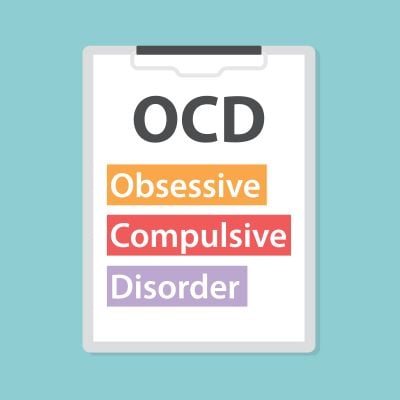Explaining OCD to a Patient and Family
Explaining OCD to a Patient and Family

My newest way to explain OCD to a patient and family.
I love trying to come up with new ways to explain OCD to new patients and families. In my 20 years of treating OCD, I like to think that I have honed in on it pretty well, and thought I would share it with all of you. I would appreciate your feedback and would love to hear if you use it with your patients and how it went.
Here we go.
OCD: Hey, just remember to not think about X anymore, OK? As long as you do not think about it, picture it in your head, or have any urges to do X, then you are I are good.
Me: OK, do not think of X. Oh darn, I just thought of X.
OCD: Hey, I told you not to think of X, and you just did what I told you not to do.
Me: Well, it is pretty hard not to think of something when you are told not to think of it.
OCD: Not my problem. OK, so now that you thought of X, you have to do something so menial and ridiculous, to my standards of course, until I am satisfied that you are not really wanting X to happen. Begin.
Me: I really do hate you OCD.
OCD: Do not really care, but if you anger me, there will be even more menial tasks and ridiculous behaviors that I will make you do until I am satisfied. Believe me, you do not want to experience me unsatisfied. I will really (*9%%&&%) you up if you do not satisfy me.
Me: Sorry OCD, you are right, I will do whatever you say. Please let me know when I have finally satisfied your needs.
OCD: OK, will do……….keep going……….just a little more…….Oh, you were so close, but that last time was just a bit off, so you have to start all over again.
Me: Darn, really?
OCD: DO not piss me off!
Me: Sorry OCD, I will do as you wish.
OCD: OK, keep going, almost there, YES! You did it. Congrats, now, don’t you feel better? I knew that you would. Boy what a relief. Now, just remember, don’t think of X and we are good.
Me: X. Darn , I thought it again……
When I play this out in my funny voices in front of patients, they initially think I am a bit odd, but after a few minutes of this, the family members all start to look at each other and you can see the nods of recognition that, hey, maybe this guy knows a little bit about what OCD is.
That has been my hook recently, and it has worked well. Then I go for the treatment explanation, which I have tried to really simplify as well – here it is.
Dr. PBMc: You have only a few things that you need to do to not pay attention to OCD anymore. Notice, I did not say get rid of it – we have not figured that out yet, but you can get to the point of just not caring about it. Here is what you do. Go with your second thought.
Patient: What does that mean?
Dr. PBMc: Your first thoughts are anxious and OCD thoughts. But, they are just automatic thoughts and there is no need to actually pay attention to them. For example, I can think about punching the wall right now, but it does not make me do it. I could really care less about my initial thoughts to most things, and I want you to get that way about OCD related thoughts, images, or urges.
Patient: Can I do that?
Dr. PBMc: Sure, you do it all the time. I bet you have tons of automatic thoughts that you do not follow through on daily. Heck, I thought about ramming at least three cars on the way to work today, but I still have not done it yet in my 31 years of driving.
Patient: But that is different, you do not have OCD
.
Dr. PBMc: OK, and find me one news headline that says that a person with OCD actually went and did the thing that they fear.
Patient: I have never seen that.
Dr. PBMc: Good, so the first thoughts do not make things happen, so we can go with our second thoughts.
Patients: How will we do that?
Dr. PBMc: Exposure and Response Prevention
.
Then you can launch into your favorite ERP rationale and explanations.












